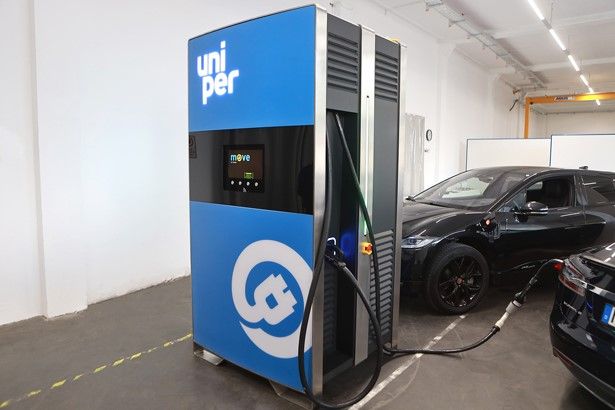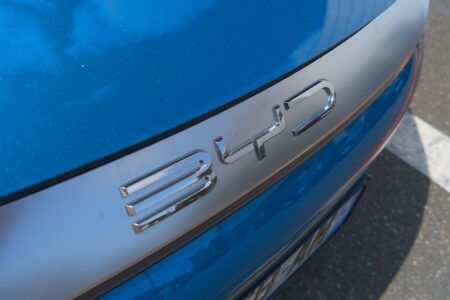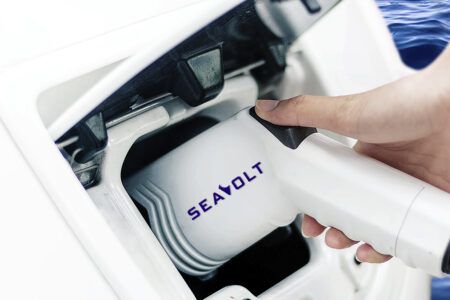An efficient charging infrastructure is vital for the successful transition of electric vehicles from niche to mass, however, at places with fluctuating charging demand, operators are reluctant to install stationary charging stations given the lacking business case. To solve this, a mobile power bank has been developed.
FEV, a service provider of vehicle and powertrain development for hardware and software, supported Uniper from ideation to Proof of Concept (PoC) of the Mobile Fast Charging Solution (MFC), an innovative charging infrastructure approach.
Uniper’s power bank for electric vehicles can be used to cover peak demands without the need of large investments into grid reinforcements and transformer stations. MFC is capable of operating independently from the power grid. Once the batteries are drained, the station is replaced by a new one.
Despite the compact dimensions of 1.2 m x 1.25 m footprint and 2.5 m height, the Mobile Fast Charger provides 150 kWh usable energy capacity, corresponding to up to 1,000 km pure electric driving range. In addition, the device allows to charge two Electric Vehicles through both charging standards, CCS 2.0 and CHAdeMO, with up to 75 kW power in parallel. To handle the intense heat generated in the compact housing at this power flow, FEV integrated a high-performance cooling system and developed a dedicated cooling strategy. The system layout not only allows for high charging currents, but also guarantees safe operation of the MFC even at extreme weather conditions. Beyond that FEV will hand out the PoC with a CE certification, as the device complies with the most stringent safety requirements and has been successfully tested at an EMC lab.
Additionally, the Mobile Fast Charger can be managed as an Internet of Things (IoT) device, allowing for remote condition monitoring and organization of operations. To ensure this, FEV has developed a highly complex Operational Management System (OMS) for error-free operation of the PoC as well as distant access to real-time data. Through the remote access, Uniper can track operating conditions, such as battery temperature, state of charge and charging power as well as the acceleration and location of the station. Furthermore, the billing process of the IoT device can be managed via the backend connection.





